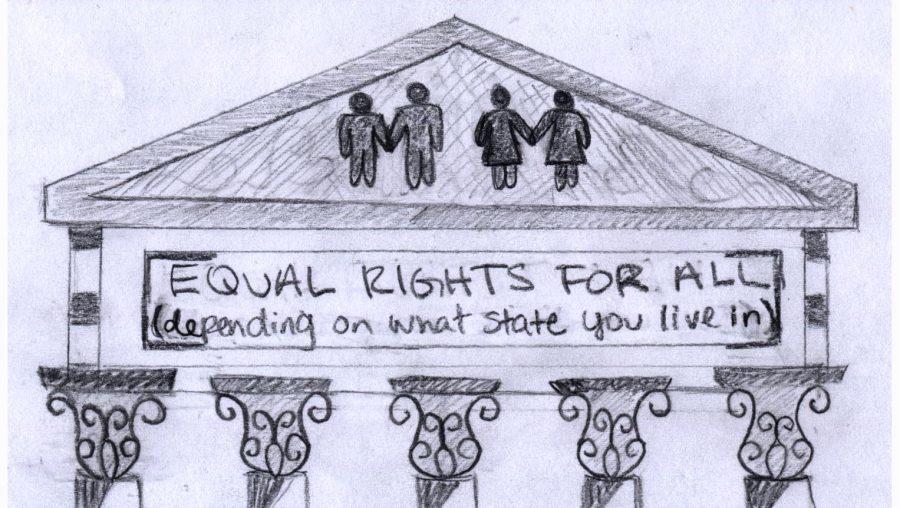Feb. 19, 2014
Editorial Staff Opinion
Monday, Feb. 10, marked a monumental day for same-sex couples across America. U.S. Attorney General Eric Holder announced the federal government will expand benefits for same-sex married couples to recognize their legal advantages, even in places where same-sex marriage is not legal.
However, the new benefits same-sex couples will enjoy are limited to federal benefits. This means if a married same-sex couple has something such as a federal bankruptcy proceeding in progress, it will still be valid if the couple moves somewhere same-sex marriage is not recognized.
This new expansion is a step in the right direction for the United States, but it is time for the federal government to take the next logical step and legalize gay marriage across the country.
Although these new rights are something to be celebrated, it would seem the United States as a whole is ignoring the people who still cannot get married and obtain these rights.
According to the Williams Institute at the UCLA School of Law, about eight million adults in the United States identify as lesbian, gay or bisexual. That makes up about 3.5 percent of the total population.
Although 17 states allow same-sex marriages, 57 percent of Americans still live in places with a constitutional amendment against same-sex marriage, according to freedomtomarry.org.
Atlanta has the third-highest percentage of lesbian, gay or bisexual people living in it at 12.8 percent, despite having a constitutional amendment prohibiting same-sex marriage, according to the same Williams Institute study. Unfortunately for that group of nearly 40,000 people, they will not be able to enjoy the federal benefits being expanded to their peers because they are unable to get married in their state.
Many other groups are in the same situation, such as the 63,000 lesbian, gay or bisexual people living in Phoenix, 62,000 in Houston, and 58,000 in Dallas.
If the federal government did legalize same-sex marriage in every state, same-sex married couples would enjoy both federal and state benefits. For example, a same-sex married couple in Wisconsin would be eligible for programs such as BadgerCare as well as the benefits they get from the federal government.
The biggest argument against having the federal government declare same-sex marriage legal in all states, is the states would lose the power to enforce its own laws.
States having individual rights is a fundamental ideal this country was founded on, and in many cases, is a blessing. In terms of civil rights, though, the United States needs to set a standard for all states to follow.
In previous cases of civil rights, taking action through the federal government has proved beneficial.
Suzan B. Anthony and Elizabeth Cady Stanton were the first to propose an amendment to allow women to vote. After battling for 41 years, the amendment was ratified in 1920, and women in all sates were allowed to vote.
Until then, states were allowed to decide who could and could not vote.
The Civil Rights Act of 1964 is another example of legislation passed on a federal level to expand certain rights to all U.S. citizens, not just a select few.
The act gave only the federal government the power to decide whether or not to enforce segregation and discrimination. This power was previously only held at the state level.
The United States is not perfect as it is, but without these federal statutes, who is to say the United States would be anywhere near as accepting as it is today?
If the United States government wants to continue in the right direction and further push for civil rights, the reasonable thing to do is to make same-sex marriage legal in all states.


